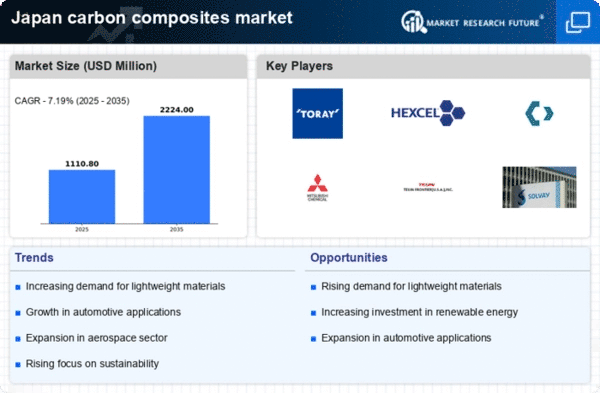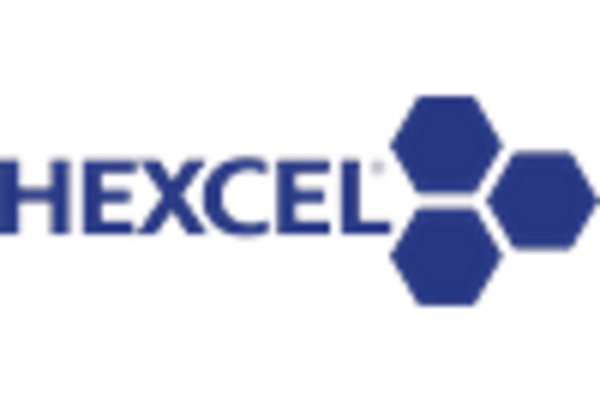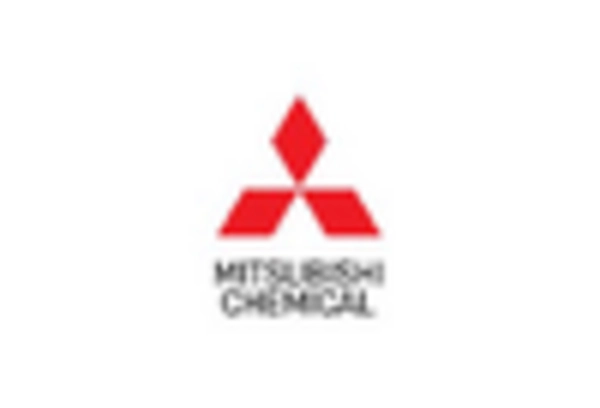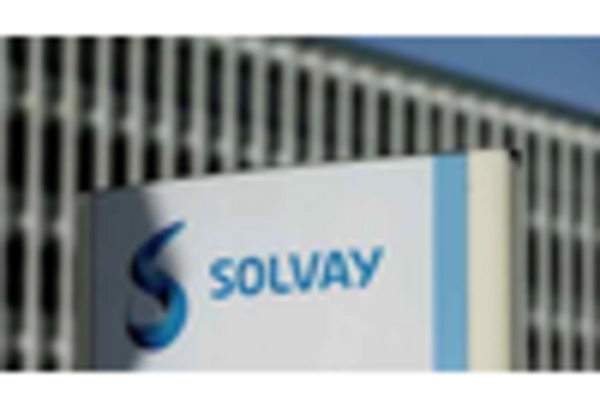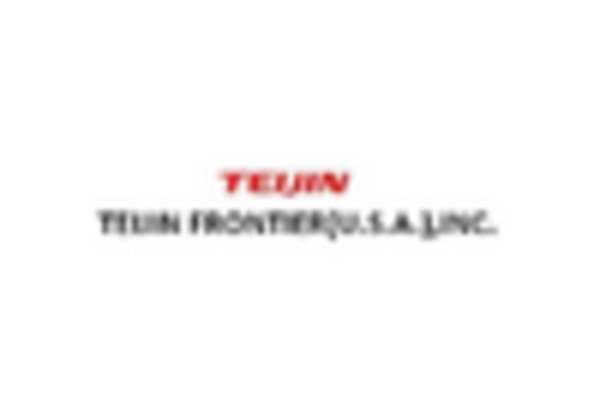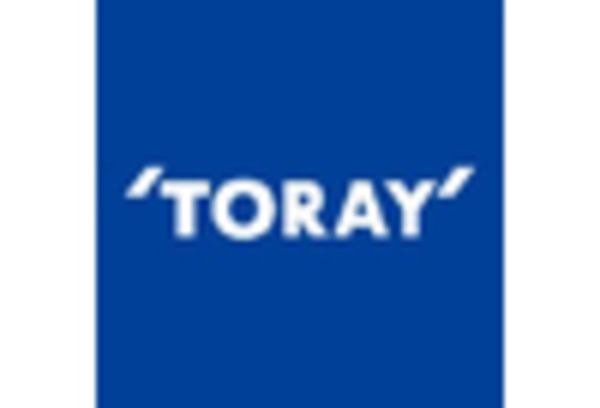The carbon composites market in Japan is characterized by a dynamic competitive landscape, driven by innovation, sustainability, and strategic partnerships. Key players such as Toray Industries (Japan), Mitsubishi Chemical (Japan), and Teijin Limited (Japan) are at the forefront, leveraging their technological expertise to enhance product offerings. Toray Industries (Japan) focuses on advanced materials for aerospace and automotive applications, while Mitsubishi Chemical (Japan) emphasizes sustainable solutions through its eco-friendly product lines. Teijin Limited (Japan) is also notable for its commitment to circular economy principles, which collectively shape a competitive environment that prioritizes innovation and environmental responsibility.In terms of business tactics, companies are increasingly localizing manufacturing to reduce lead times and optimize supply chains. The market structure appears moderately fragmented, with several players vying for market share. However, the influence of major companies is substantial, as they set industry standards and drive technological advancements. This competitive structure fosters an environment where collaboration and strategic alliances are essential for growth and market penetration.
In August Toray Industries (Japan) announced a partnership with a leading aerospace manufacturer to develop next-generation carbon fiber composites. This collaboration is expected to enhance the performance and safety of aircraft, reflecting Toray's commitment to innovation in high-performance materials. The strategic importance of this partnership lies in its potential to solidify Toray's position as a leader in aerospace applications, thereby expanding its market reach.
In September Mitsubishi Chemical (Japan) unveiled a new line of bio-based carbon composites aimed at reducing environmental impact. This initiative aligns with global sustainability trends and positions the company favorably among eco-conscious consumers. The introduction of these materials not only enhances Mitsubishi's product portfolio but also demonstrates its proactive approach to addressing environmental challenges, which is increasingly becoming a competitive differentiator.
In October Teijin Limited (Japan) launched a digital platform for real-time monitoring of carbon composite production processes. This move towards digitalization is indicative of the industry's shift towards integrating advanced technologies to improve efficiency and reduce waste. By adopting such innovative practices, Teijin is likely to enhance its operational capabilities and respond more effectively to market demands.
As of November current competitive trends in the carbon composites market are heavily influenced by digitalization, sustainability, and the integration of AI technologies. Strategic alliances are becoming increasingly vital, as companies seek to leverage each other's strengths to enhance product offerings and market presence. Looking ahead, competitive differentiation is expected to evolve from traditional price-based competition to a focus on innovation, technological advancements, and supply chain reliability, underscoring the importance of adaptability in a rapidly changing market.


